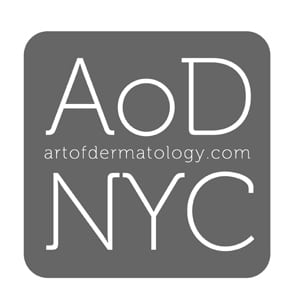As amazing as dairy can taste, the milk, cheese, whey protein, and yogurt products you consume can have a detrimental effect on your skin health. Cow’s milk contains a variety of ingredients that can aggravate your skin health. Continue reading to learn more about the skin effects of a dairy-filled diet.
Why is Dairy Bad for the Body?
Dietary dairy has been shown to cause skin trouble for some people in various ways including flaring acne, eczema, rosacea, and even autoimmune conditions. There are multiple potential culprits which may work together to trigger issues of inflammation, overproduction of skin cells, and increase in oil production.
The dairy that you consume daily disrupts your natural insulin levels. Higher insulin levels in the body can leave you with skin issues including acne, rosacea, eczema, pigmentation, and dryness.
According to a study by Christian R. Juhl of the University of Copenhagen, unruly blemishes can correlate with higher dairy intake. Three ingredients make dairy difficult for the human body to digest. These ingredients include casein, lactose, and added hormones.
Casein and Whey
Mammal milk contains several proteins including casein and whey. Both are potential triggers for inflammatory skin conditions, as evidenced in the articles Evidence for acne-promoting effects of milk and other insulinotropic dairy products and What protein powders are best for acne prone skin?
Lactose
Lactose is a sugar naturally found in dairy products. Human breast milk is designed to break down lactose with lactase. Both components are included in human breast milk; however, lactase is not a component in cow’s milk making it difficult for the human body to break it down. This affects individual skin and body. Those with lactose intolerance can experience inflammatory skin conditions including skin texture and skin barrier disruption.
Hormones
Cows’ milk contains natural hormones and injected synthetic hormones that increase their milk production. This alters the functionality of the body encouraging excess sebum production, clogged pores, and a combination of other skin issues.
Healthy Alternatives for Healthy Skin
Dairy products of all varieties can trigger skin issues. Even dairy-based protein powders like whey can trigger acne due to the heightened levels of the amino acid leucine. Leucine naturally activates a growth regulator that can aggravate acne and skin inflammation.
Although dairy products contain important components of our diet including protein and calcium, these nutrients can be found in other foods. Leafy greens, fruits, cruciferous vegetables (think broccoli), legumes (beans), whole grains, nuts, and seeds can serve as milk alternatives. These foods can help you reach your daily nutritional goals without risking your skin health.
Schedule a Consultation
Achieve healthy skin today through a consultation with Dr. Krant. Book an appointment with a licensed dermatologist at the Art of Dermatology at the Laser & Skin Surgery Center of New York to create a skincare regimen that’s right for you.
Jessica Krant, M.D., MPH, is a board-certified dermatologist with specialized experience in cosmetic, laser, surgical, and medical dermatology, but above all, Dr. Krant is most proud to be a caring, comprehensive physician who takes the time to listen and send her patients home with a smile.















Leave A Comment